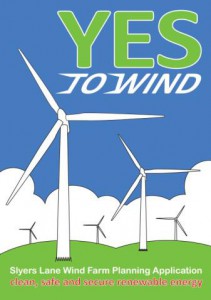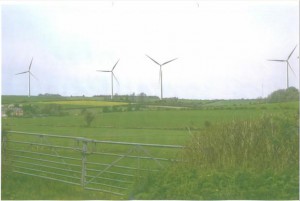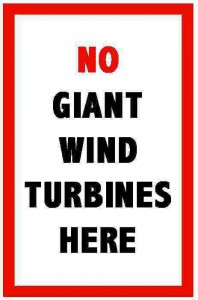Wind Turbines in Dorset? Planning Committee says NO
I recently attended a wind turbine planning determination in a crowded village hall when the planning committee (well 6 of the 11 members attended) decided the fate of an application for 4 large wind turbines. We all listened to officers of the council and AONB explain the landscape and heritage sensitivities (the turbines would be seen in the setting of listed buildings and the beautiful Dorset landscape) followed by numerous speakers against and for the application.
Those opposed to the application made the point that our landscape must be preserved, that the turbines would be seen from village houses and gardens and even that wind turbines damage people’s health. The CPRE claimed that renewable energy targets in Dorset had been exceeded so no new installations were needed. Each speaker received rapturous applause.
I have witnessed a few campaigns to oppose wind turbine applications in Somerset and Dorset. There is usually assistance from outside organisations. Meetings, leaflets and doorstep petitions are arranged. The purpose – of course – is to raise anxiety levels. Misinformation is spread such as; bird and bat populations are put at risk; infra sound prevents people sleeping and gives them headaches; house prices will fall and tourists will stay away. Wind turbines are inefficient and generate hardly anything. Sometimes photographs that exaggerate the scale are published.
In reality, the choice to approve or not – as the officers and members present acknowledged –is justified on the basis of a subjective view of landscape and visual aesthetics.
About seven of us spoke up in favour of the application. It was explained that climate change is an issue that needs to be dealt with so urgently we need to move to 100% of our electricity from renewables ASAP, that wind turbines are the cheapest technology but that there are very sites suitable for their installation in Dorset.
When I spoke, looking out onto the big audience of grey haired baby boomers while younger people were at work, I realised just where the divide in opinion lay. The majority of the audience – many retired to timeless Hardy’s Dorset – would not sacrifice their views from around the village to give the younger generation a better future. Yet just think what the generation before the baby boomers sacrificed in the 30s, 40s and 50s!
Anyone wanting to live in Hardy’s Dorset should stop using electricity, swap their car for a horse and cart, live in a very small draughty house and campaign to take out pylons and large roads. If we walk backwards into the future, we will suffer because we can’t see where we are going.
I spoke up for farmers. They may be sitting on land and property worth millions with large sums flowing through their business but their disposable income can be modest. They work very long hours as standard and consider themselves guardians of the land (and landscape) which they expect to pass on to their children rather than realize paper wealth.
I was once told by a farmer – only half-jokingly – that I shouldn’t expect him to take my opinions on local matters seriously because my family had not been in Dorset since Saxon times. Despite that comment, farmers are usually quiet, self-effacing, not prone to voicing their opinions and actually can be intimidated.
Wind turbines make sense to farmers because they give resource efficient future financial security. The opposing camp are very ably led by people some of which, have moved into the area to retire. They put high value on the landscape the farming community have created and look after, but look to the past rather than the constant change and planning for the future they may have experienced in their own working lives.
The media are underestimating the connection between peoples voting intentions and their views on climate change. The Green surge is largely due to younger people with a strong sense of injustice against their generation. Baby boomers have had it good with their jetting around the world on holiday, big cars and houses by mortgaging their children’s and grandchildren’s futures (the deficit.) This put the carbon in the atmosphere that puts future generations in jeopardy.



